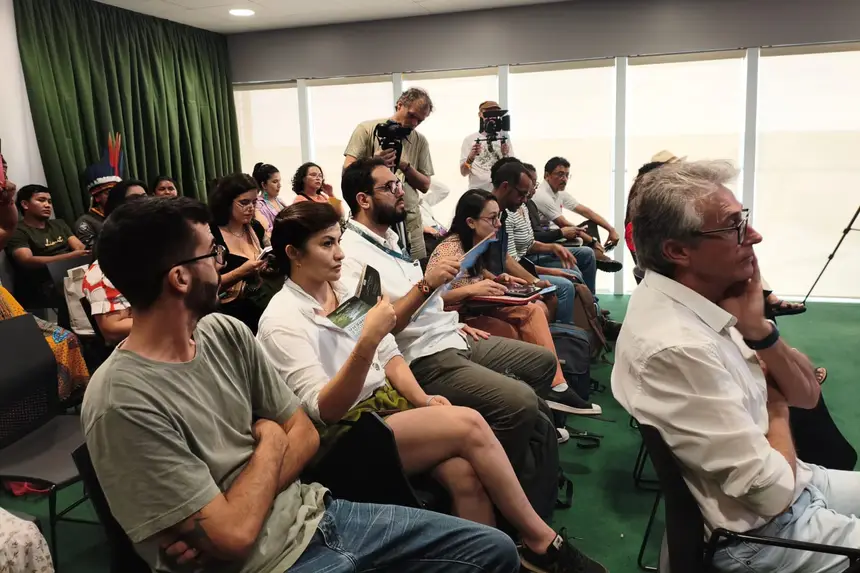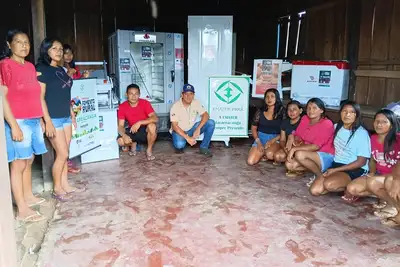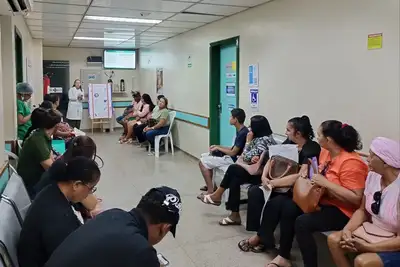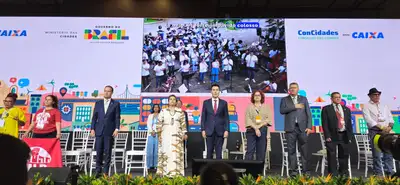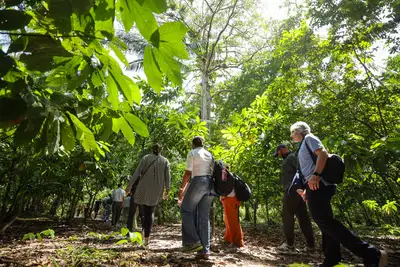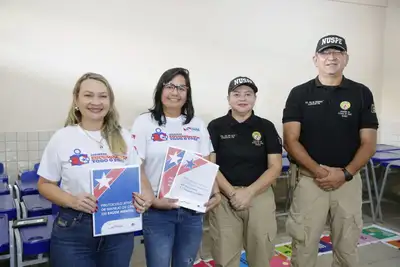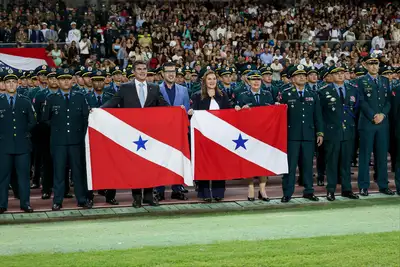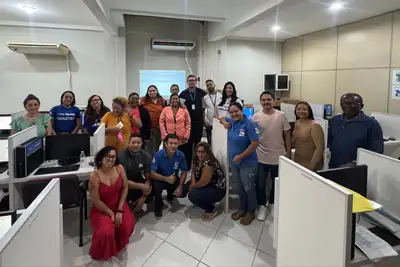Ideflor-Bio promotes dialogue on biocultural restoration and forest seed chain at COP30
The meeting reinforced the importance of integrating science, tradition, and community governance to strengthen ecological restoration actions aligned with the way of life of forest peoples.
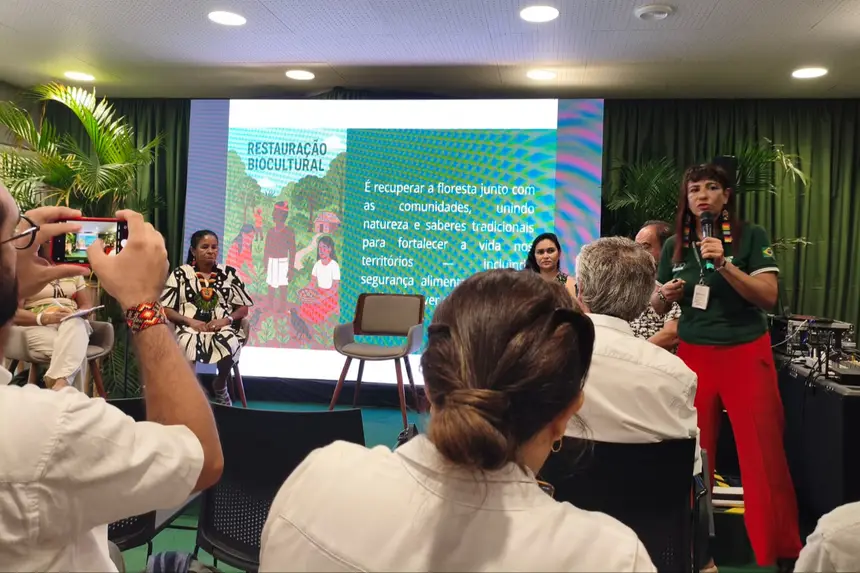
Researchers, indigenous leaders, and representatives from civil society gathered at the Pará Pavilion in the Green Zone of COP30 for a collaborative meeting dedicated to the theme "Biocultural Restoration and Forest Seed Chain: Knowledge, Art, and Community Governance of the Living Forest." The meeting reinforced the importance of integrating science, tradition, and community governance to strengthen ecological restoration actions aligned with the way of life of forest peoples.
The activity was led by environmental analysts from the Institute of Forest Development and Biodiversity of Pará (Ideflor-Bio), Claudia Kahwage and Jalva Braga, who emphasized the participatory and inter-institutional nature of the dialogue.
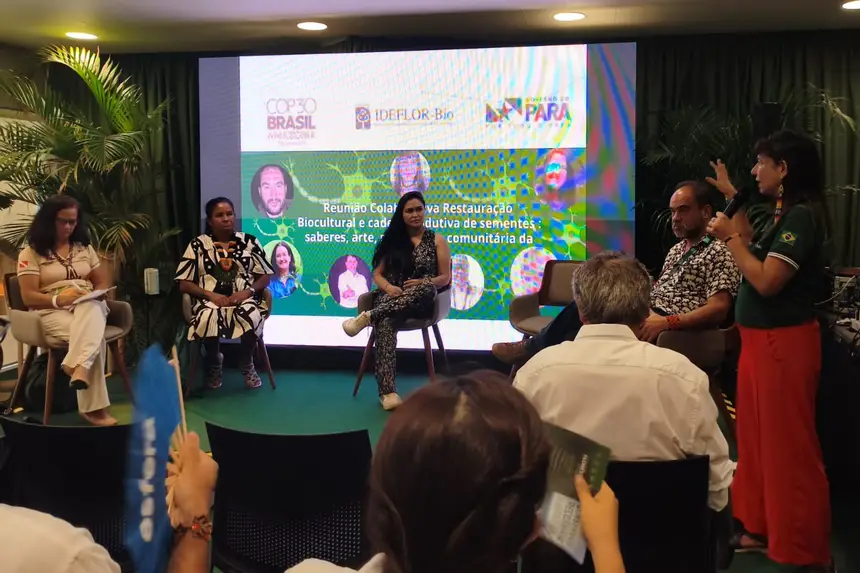
The debate brought together researchers and representatives from partner institutions, including Dr. Marcelo Tabarelli (Emílio Goeldi Museum), Dr. Seidel Santos (State University of Pará - Uepa), Juarez Pezzuti, Dr. Rene Poccard (International Cooperation Center for Agronomic Research for Development - Cirad), Dr. Noemi Viana (Embrapa), and Joelma Tembé (Association of Indigenous Women of Gurupi - Amig). The diversity of voices reflected the understanding that biocultural restoration goes beyond exclusively technical solutions, involving memory, territory, ancestral knowledge, and active participation of traditional communities.
In contextualizing the meeting's objective, Claudia Kahwage highlighted the relevance of technical cooperation between research and indigenous communities. "The collaborative meeting included the participation of research organizations and civil society that cooperate with the project supporting the management and restoration of the Alto Rio Guamá Indigenous Land. We discussed the importance of biocultural restoration for the Amazon," she stated. For her, strengthening these partnerships is essential to consolidate management and regeneration practices aligned with indigenous values and ways of life.
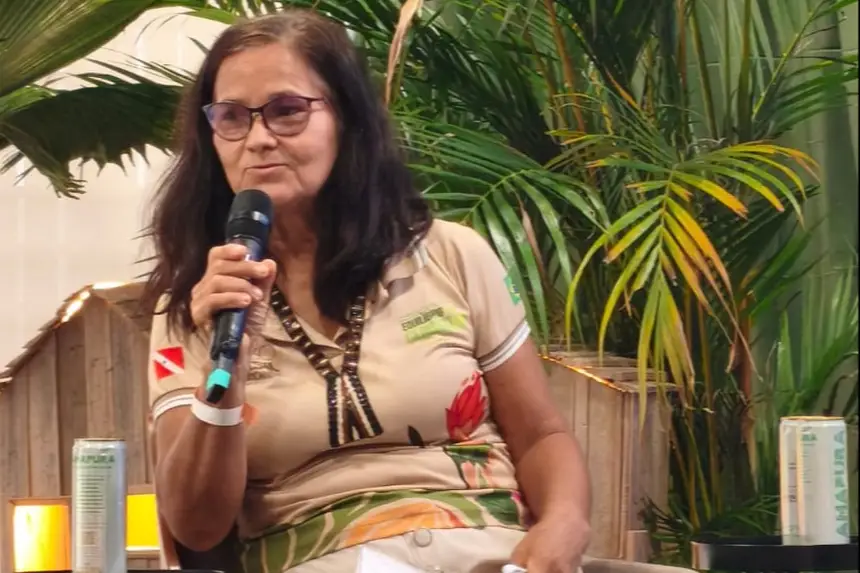
Strengthening - The centrality of communities in the restoration process was deepened by Professor Seidel Santos. He emphasized that biocultural restoration is inseparable from the direct participation of forest peoples. "A large part of the conserved areas in Pará is in special territories — conservation units, indigenous lands, and traditional territories. Strengthening actions in these places means maintaining the forest, biodiversity, and cultural practices that ensure the existence of these peoples. Discussing this at COP is fundamental, as the Amazon is an anthropogenic forest, shaped by the traditional actions of these peoples throughout history," he stated.
Seidel also highlighted the unique aspect of the project coordinated by Ideflor-Bio, which combines technical training and community governance. He explained that the initiative aims to train 120 agroforestry agents in the Guamá and Gurupi regions, preparing youth and leaders to act in all stages of the restoration production chain — from seed collection to the implementation of agroforestry systems. "Restoration involves a production chain. By uniting technical training and traditional knowledge, we strengthen communities and enhance the solidity of restoration actions," he added.
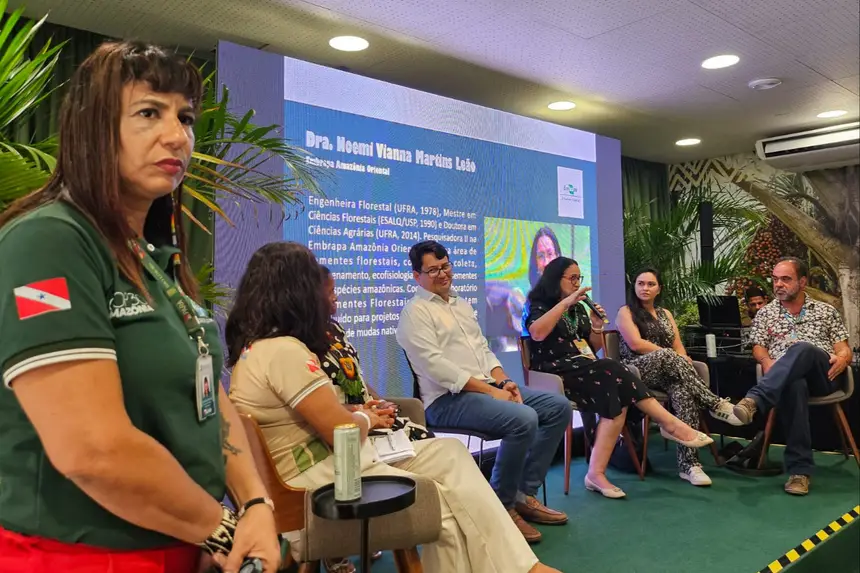
Valuation - Claudia Kahwage also states that the meeting highlighted the need for public policies that value ancestral knowledge, promote territorial autonomy, and integrate science and culture in environmental decision-making.
"The presence of indigenous women, Amazonian researchers, and international institutions highlighted the transversal nature of the theme and the recognition that biocultural restoration is one of the most effective strategies for maintaining the living forest. In the end, it became clear that COP30 is a decisive space to reaffirm that restoring the Amazon also means restoring historical, cultural, and human ties with the territory," concluded the environmental analyst.



